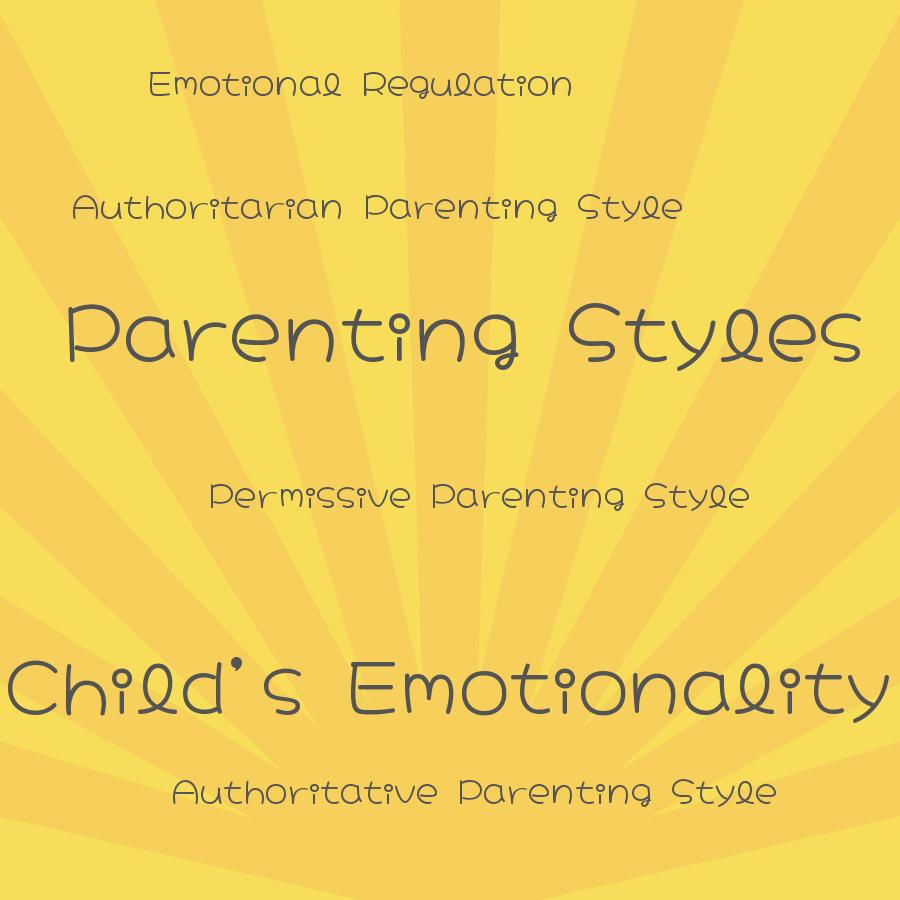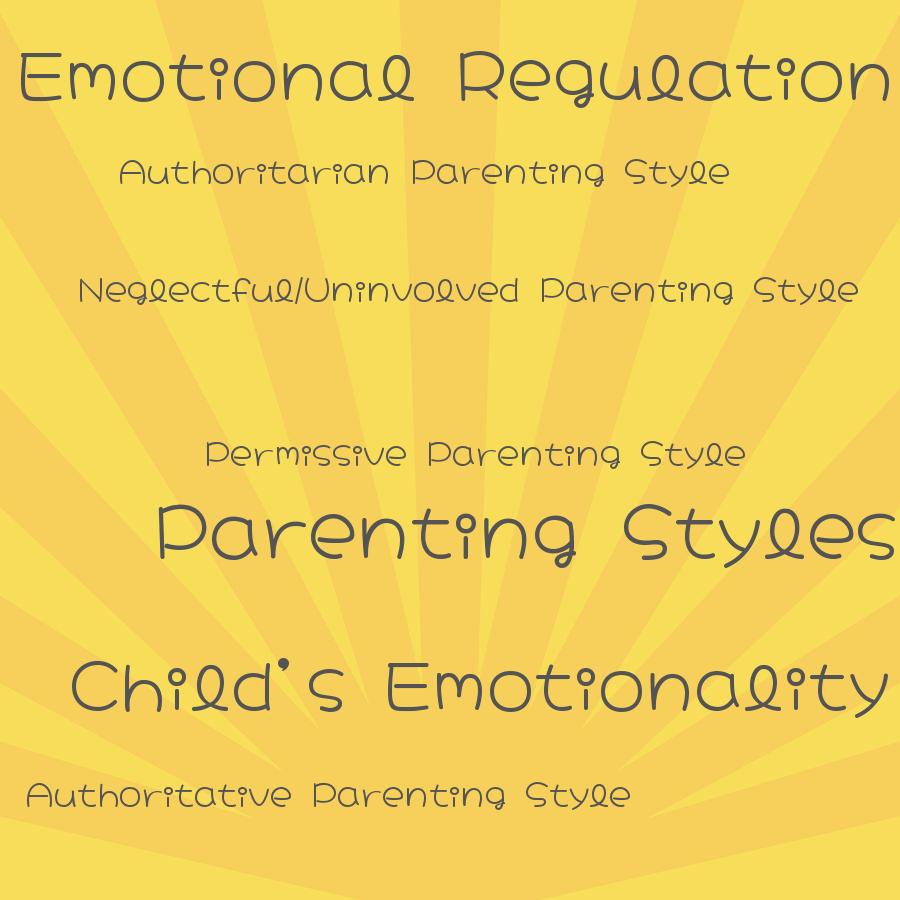Parenting styles have a significant impact on a child’s emotional regulation. Authoritative parenting, which involves warmth and reasonable expectations, promotes effective emotion regulation in children. In contrast, neglectful or overly controlling parenting styles can lead to poor emotional regulation skills in children.
As a child, I remember being in awe of how my friend’s mother would always have a smile on her face and never raise her voice, even when my friend misbehaved. In contrast, my own mother was quick to scold and punish me for the slightest mistake.
It wasn’t until I grew up that I realized that these were two different parenting styles – authoritative and authoritarian.
Parenting styles can have a significant impact on a child’s emotional regulation. Emotional regulation is the ability to manage one’s emotions in response to different situations effectively.
It helps children develop resilience and adaptability, which are crucial skills needed for success in life.
In this blog post, we’ll explore the various parenting styles and their effects on emotional regulation in children. We’ll also discuss some tips on how parents can promote healthy emotional development in their kids.
So sit back, grab your coffee mug or tea cup as we take you through this exciting journey!
Here You Will Learn:
Introduction to Parenting Styles


Parenting styles refer to the different approaches that parents use to raise their children. These styles are shaped by a variety of factors, including cultural background, personal beliefs and values, and individual experiences.
There are four main parenting styles: authoritative, authoritarian, permissive/indulgent and neglectful/uninvolved.
As I grew older and became more interested in child development research as a blogger; I discovered that my friend’s mother was an authoritative parent while my own mother was an authoritarian parent. Authoritative parents set clear rules for their children but also provide warmth and support when needed.
They encourage independence while still maintaining control over their child’s behavior.
On the other hand, authoritarian parents tend to be strict with little room for negotiation or flexibility in rules enforcement; they often rely on punishment rather than positive reinforcement as a means of discipline. These two parenting styles have very different effects on emotional regulation in children – something which we’ll explore further below!
Emotional Regulation in Children
Emotional regulation is a critical aspect of a child’s development. It involves the ability to identify, understand, and manage one’s emotions effectively.
Children who have good emotional regulation skills can cope with stress better, build healthy relationships with others and perform well in school.
As I grew older and learned more about parenting styles, I realized that my friend’s mother was an authoritative parent while my own mother was authoritarian. Authoritative parents are warm and responsive to their children while also setting clear boundaries for behavior.
They encourage independence but provide guidance when needed.
On the other hand, authoritarian parents tend to be strict disciplinarians who value obedience over individuality or creativity in their children. They may use punishment as a means of control rather than positive reinforcement or encouragement.
Research has shown that authoritative parenting style promotes better emotional regulation in children compared to authoritarian parenting style which can lead to poor emotional outcomes such as anxiety disorders or depression later on in life. In the next section of this article we will explore how different types of parental styles affect child’s emotionality differently
Authoritarian Parenting Style and Emotional Regulation
As I mentioned earlier, my mother’s parenting style was authoritarian. She had strict rules and high expectations for me, which often left me feeling anxious and fearful of making mistakes.
This type of parenting is characterized by a lack of warmth and responsiveness towards the child’s emotional needs while emphasizing obedience to authority.
Studies have shown that children raised in an authoritarian household tend to struggle with emotional regulation. They may have difficulty expressing their emotions or understanding how others feel because they were not taught how to do so effectively.
Furthermore, these children may develop low self-esteem due to constant criticism from their parents. As a result, they are more likely to experience anxiety or depression later in life.
If you’re an authoritarian parent reading this article right now, don’t worry! There are ways you can promote healthy emotional development in your child without sacrificing discipline entirely. One way is by practicing active listening – taking the time to understand your child’s feelings instead of dismissing them outrightly as irrelevant or unimportant.
It is essential for parents always be mindful about their parenting styles’ impact on their children’s mental health and well-being—especially when it comes down Emotional Regulation skills development- one crucial aspect that will help shape our kids into resilient adults who can handle life challenges with ease!
Permissive Parenting Style and Emotional Regulation
Permissive parenting is a style where parents are lenient and indulgent towards their children. They tend to avoid confrontation, set few rules, and rarely enforce any consequences for misbehavior.
As a child growing up with an authoritarian mother, I often envied my friends who had permissive parents. They seemed to have more freedom and fewer restrictions than I did.
However, research has shown that permissive parenting can lead to poor emotional regulation in children. Children raised by permissive parents may struggle with self-control as they lack the structure needed for healthy emotional development.
Without clear boundaries or consequences for their actions, these kids may not learn how to manage their emotions effectively when faced with challenging situations such as disappointment or frustration.
As a blogger writing on this topic today; it’s essential that we understand the impact of different parenting styles on our children’s emotional regulation so we can make informed decisions about how we raise them. In the next section of this article let us explore another type of parenting style – authoritative- which has been found effective in promoting healthy emotional development in kids!
Authoritative Parenting Style and Emotional Regulation
As I mentioned earlier, my friend’s mother had an authoritative parenting style. This type of parenting is characterized by high levels of warmth and support combined with clear rules and expectations.
Authoritative parents are responsive to their children’s needs while also setting limits on their behavior.
Research has shown that children raised in authoritative households tend to have better emotional regulation skills than those raised in other types of homes. These kids learn how to express themselves effectively, manage stressors, and cope with difficult situations without becoming overwhelmed or shutting down emotionally.
This is because the authoritative approach fosters a sense of security and trust between parent and child. Children feel safe expressing their emotions knowing that they will be heard without fear of punishment or rejection from their parents.
In contrast, authoritarian parenting styles can lead to poor emotional regulation skills as these parents tend towards being strict disciplinarians who prioritize obedience over nurturing relationships with their kids. On the other hand, permissive parenting styles lack structure which can leave children feeling insecure about boundaries leading them into developing poor self-regulation habits.
It’s important for parents who want to promote healthy emotional development in their kids should strive for an authoritative approach when it comes raising them up!
Neglectful/Uninvolved Parenting Style and Emotional Regulation
Neglectful or uninvolved parenting is a style where parents are disengaged and indifferent towards their child’s emotional needs. They may provide basic physical care, such as food and shelter, but they do not offer any emotional support or guidance.
Children raised in this type of environment often struggle with regulating their emotions.
As I grew older, I noticed that some of my friends had parents who were completely absent from their lives. These children would often act out in school or engage in risky behaviors to seek attention because they lacked the necessary emotional support at home.
Studies have shown that neglectful parenting can lead to poor emotion regulation skills in children. Without proper guidance on how to manage emotions effectively, these kids may develop behavioral problems like aggression and impulsivity.
Furthermore, neglectful parenting can also result in low self-esteem and feelings of worthlessness among children since they feel unimportant to their caregivers’ eyes.
It is essential for parents who tend towards this style to recognize the impact it has on a child’s development early enough before it becomes too late for intervention measures.
Impact of Culture On Parenting Styles & Emotional Regulation
Culture plays a significant role in shaping parenting styles and emotional regulation. In some cultures, authoritarian parenting is the norm, while in others, authoritative or permissive parenting may be more prevalent.
For instance, my friend’s mother who always had a smile on her face was from an Asian culture where respect for authority figures is highly valued. In contrast to this cultural norm of authoritarianism that emphasizes obedience and conformity over individuality and self-expression; Western cultures tend to promote autonomy and independence as essential values for children’s development.
This difference can lead to different approaches when it comes to emotional regulation. For example, parents from collectivist cultures may prioritize social harmony over individual expression by discouraging their children from expressing negative emotions like anger or frustration openly.
On the other hand, parents from individualistic societies might encourage their kids’ self-expression but struggle with setting boundaries around acceptable behavior. It’s important for parents to understand how culture influences their approach towards raising emotionally regulated kids so they can strike a balance between promoting healthy emotional development while still respecting cultural norms.